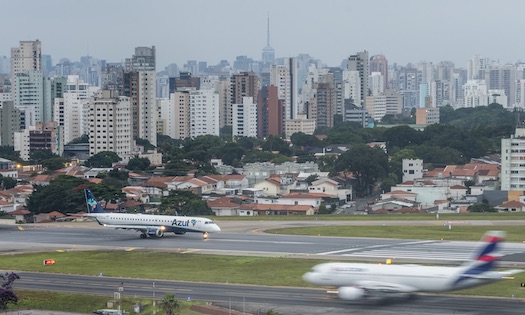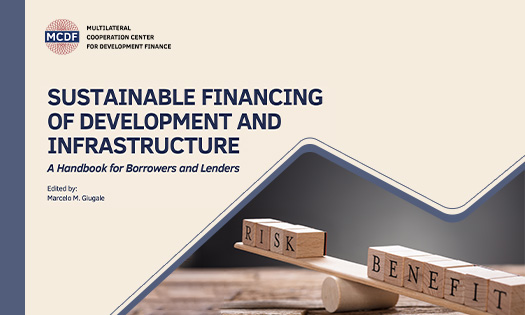
A new report detailing ways to promote “climate-smart” connectivity infrastructure that is both low carbon and resilient to climate shocks has been issued by the Multilateral Cooperation Center for Development Finance (MCDF).
Climate-Smart Connectivity Infrastructure: Best Practices and Case Studies spotlights practical lessons to help developing countries and partners mobilize finance and develop a project pipeline for connectivity infrastructure that fosters climate mitigation and adaptation. It focuses on coastal infrastructure, maritime transport, roads, railways, and energy.
Watch: Key Messages from MCDF Climate-Smart Connectivity Infrastructure Report
The report synthesizes key messages from case studies and thematic analyses presented during the five-part Workshop Series on Climate-Smart Connectivity Infrastructure, which was co-organized by MCDF, the Egyptian Ministry of Finance, Asian Infrastructure Investment Bank, Islamic Development Bank, Vulnerable Twenty Group, World Bank, and World Resources Institute.
“Fast-growing, connectivity-based sectors, such as energy and transport, account for over 70 percent of greenhouse gas emissions,” noted Zhongjing Wang, MCDF Chief Executive Officer. “Infrastructure that supports these sectors has a long-life span, meaning that decisions taken today will greatly impact countries’ progress toward carbon net-zero and sustainable development for decades.”
“By implementing climate-smart connectivity lessons, countries can develop climate-resilient infrastructure, minimize costs, and protect communities and economies from the impacts of climate change,” CEO Wang added. “Collaboration between the public and private sectors, effective data utilization, and robust planning are vital to advancing climate-resilient infrastructure worldwide.”
The report describes the importance of enforcing construction regulations and ensuring adequate maintenance of infrastructure for climate resilience; designing infrastructure projects that consider the uncertainty of climate change’s full impact; and innovative financial models and public-private sector arrangements that can build the capacity of countries to implement climate projects.
The report goes on to discuss the role governance and institutional frameworks should play in improving coordination between governmental bodies covering climate and sectors such as transport, energy, and information and communications technology. It also explores the potential for data and modeling on climate risks and opportunities to boost infrastructure project decision-making.
It concludes by examining the prospects for a high return on investment in climate resilience, the benefits of shifting to cleaner technologies for health, jobs, and trade, and opportunities for private sector financing to reduce costs and bridge gaps in capital and expertise.
Media Contact
David Hendrickson
Senior Communications Officer
Mobile: +86 185 0114 6758
david.hendrickson@themcdf.org











